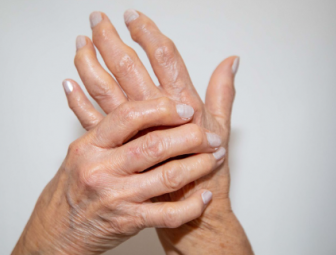- Customer Care +91 8800900271
- About Us
- Contact Us
- Sell Your Brand
- International Orders
- Disease
- Homoeopathy
- Willmar Schwabe Germany
- SBL
- REPL
- Dr. Reckeweg
- Willmar Schwabe India
- Bakson's
- Hapdco
- Lords
- Allen
- B Jain
- Adven
- Dr. Wellmans
- Indo German
- Medisynth
- Wheezal
- Adel
- HSL
- New Life
- Bioforce
- JVS
- Hahnemann Laboratory (HL) Calcutta
- Bios Laboratory (BL)
- Parul Homoeo Laboratories (PHL)
- Allen Calcutta
- Bhandari
- Dr. Bhargava
- PHBL
- SSL
- Dr Vijay's
- Natcure
- Kent Pharmaceuticals
- Similia
- Ralson
- St. George
- SHL
- Burnette's Homoeopathy
- Purusottam Homeo Bikas Laboratory (PHBL)
- Father Muller Pharmaceuicals
- National Homoeo Laboratory
- EL Dr. Lal Singh Expertise
- Dr Patel's
- Bangalore Bio-Plasgens (BBP)
- Boericke Research Laboratory (BRL)
- Ayurveda
- Unani
- Health & Fitness
- Books
- Veterinary
- Online Consultation
- International Orders


Repertorial Analysis of Rheumatoid arthritis from BBCR

- By: Dr Plakshi Ahuja
- Profession: BHMS, DNHE, MD (Scholar)
- Category: Homoeopathy
- Mar 01, 2024
Rheumatoid Arthritis (RA) is a chronic multisystem, inflammatory disorder that may affect many tissues and organs, but mainly attacks the joints producing an inflammatory synovitis.
Incidence:
- RA Affects 1-3% of population world wide
- Females > Males 3: 1
- Peak age 45-65, but onset may be early from age 20-45 yrs
- About 75% are women
- The disease affects women three times more than men.
Causes:
- Genetic predisposition- RA is common in HLADR 4 or HLADR 1 positive persons.
- Infective theory- Mycobacteria, Paravoviruses, Retroviruses, Borrelia, Epstein Barr Virus, Mycoplasma as well as numerous others
- Autoimmune theory- T cells play the pivotal role in destructive RA by producing IgM
- Smoking
- Bacterial and Fungal Infections- Herpes Simplex Virus Infections, Epstein-Barr Virus (EBV)
- Vitamin D Deficiency
Pathogenesis:
- RA is a systemic disease but the most characteristic lesion are seen in the synovium or within rheumatoid nodules.
- The synovium is engorged with new blood vessels and packed full of inflammatory cells
STAGE- I (Pre- Clinical)
- Before RA Becomes clinically apparent the immune pathology is already beginning.
- Raised ESR, C-reactive protein (CRP) and RF may be detectable years before the first diagnosis.
.png)
STAGE- II (Synovial)
- Early changes are:
- Vascular congestion with new blood vessel formation
- Proliferation of synoviocytes
- Infiltration of the sub synovial layers by polymorphs, lymphocytes and plasma cells.
- There is thickening of capsular structures, villous formation of the synovium and a cell-rich effusion into the joints and tendon sheath.
.png)
STAGE- III (Destruction)
- Persistent inflammation causes joint and tendon destruction.
- Articular cartilage is eroded.
- At the margins of the joint, none is eroded by granulation tissue invasion and osteoclastic resorption.
- Partial or complete rupture of tendons.
- Swelling of the joints, tendons and bursae.
.png)
STAGE- IV (Deformity)
- Combination of articular destruction, capsular stretching and tendon rupture leads to progressive instability and deformity of the joints.
- The inflammatory process usually continues but the mechanical and functional effects of joints and tendon disruption now become vital.
.png)
Clinical Features:
- Early feature (Synovitis)
- Most commonly affected MCPJ and PIPJ, wrist, tendon sheaths around the joints (wrist-feet-knee-shoulder)
- Bilateral symmetrical polysynovitis
- Pain, fusiform swelling, stiffness, loss of mobility
- Constitutional symptom:
- LOA, LOW, Malaise and low grade fever
- Tenosynovitis
- Late feature (Destructive)
- Spread to other joint- wrist, ankle, knee, shoulder ( in order of frequency)
- Morning stiffness (more than 30 min)- improve with activity
- Activity of daily living will be affected-quality of life affected
- More Later ( Deformity)
- Pain, deformity, instability, decreased ROM
- Joint deformity- movement restricted and painful
- Thumb- Z- Deformity
- Fingers- Swan neck deformity/ Boutonnier’s deformities, ulnar deviation
- Wrist- radial and volar displacement
- Elbow- limited abduction
- Knees-swollen, flexion an vulgus
- Toes- clawed
Investigations:
- FBC- Normocytic hypochromic anemia ( Due to erythropoiesis from chronic inflammation), WBC
- Inflammatory markers- ESR, CRP elevated
- Rheumatoid Factor (RF)- anti- IgG auto Ab 80% will have it
- Anti-cyclic citrullinated peptide (CCP) Ab
- X Rays
Repertorial Analysis of Rheumatoid arthritis from BBCR
- HEAD-EXTERNAL: Rheumatic Pain - Bar-c., Staph. (305)
- EYES: Rheumatism of: ACON., Ars., Bell., Bry., Cham., Euphr., Ign., Led., Lyc., MERC., Nux-v., Puls., Rhus-t., Spig., SULPH., Verat. (316)
- EARS: Rheumatic Pain - Arn., Bell., Chin., Hep., Merc., Nux-v., PULS., Rhus-t. (355)
- FACE: Rheumatic Pain - Acon., Chin., RHUS-T. (400)
- TEETH: Rheumatic or gouty pain - ACO., Ant-c., Aran., Arn., Bell., Bry., Calc-p., Caust., Cham., Chel., CHIN., Clem., Coff., Cycl., Guai., Lyc., Mag-c., Mang., Merc., Mez., Nat-m., NUX-V., Phos., Phyt., PULS., Rhus-t., Sabin., Spig., Staph., SULPH., Verat. (425)
- MOUTH: Throat (And Gullet); Rheumatic Pain - Amb. (455)
- MOUTH: Tongue; Rheumatic Pain - Amb. (467)
- HYPOCHONDRIA: Rheumatic Pain L. - Meph. (538)
- ABDOMEN: Rheumatic Pains: Caus., Dig., Nux-v. (555)
- MENSTRUATION: Complaints at start of menses; Rheumatism: Senec. (681)
- NECK AND EXTERNAL THROAT; Rheumatic Pain: Acon., BELL., Cycl., Iod., Mez., PULS., Rhod., Squil., Staph. (746)
- NECK AND EXTERNAL THROAT: Nape; Rheumatic Pain: Acon., Anac., Asaf., Bor., Calc-p., Cycl., Graph., Guai., Iod., Merc., Mez., Nux-v., Puls., Ran-b., Rhod., Rhus-t., Staph., Verat. (750)
- NECK AND EXTERNAL THROAT: Chest Inner; Rheumatic Pain: Acon., Ant-t., ARN., Bry., Chin., Lach., Nux-v., Puls., Ran-b., Sulph., Verat. (760)
- NECK AND EXTERNAL THROAT: Chest External; Rheumatic Pain: Ambr., Ant-t., ARN., Bry., Carb-v., Kali-bi., Ran-b., Spig. (766)
- CHEST: Heart and Region of; Rheumatism, metastasis to: Acon., Ars., Aur., Bry., Caust., Kalm., LACH., Puls., Spig. (775)
- CHEST: Aggravation; Rheumatism, after: ACON., Ars., Bell., Bry., Carb-v., Caust., Cham., Chin., Coff., Hep., Ign., Lach., Merc., Nux-v., Phos., PULS., Sil., Sulph. (781)
- BACK Scapular Region; Rheumatic pain: Ambr., Asaf., Bell., Camph., Carb-v., Caust., Dros., Graph., Led., Lyc., Ol-an., Phyt., Ran-b., Rhod., Rhus-t., Staph., Sulph. (l.), Valer., Verat.. (787)
- BACK PROPER - DORSAL REGION; Arthritic pain: Arn. (788)
- BACK PROPER - DORSAL REGION; Rheumatic pain: Ambr., Ant-c., Ant-t., Bell., Carb-v., Dros., Gels., Guai., Puls., Rhus-t., Stram., Teucr., Verat. (791)
- BACK: Lumbar Region- Small of Back in general; Rheumatic pain: Ant-c., BRY., Dros. (796)
- UPPER EXTREMITIES; Rheumatic pain: Agar., Ambr., Anac., Ang., Ant-c., Ant-t., Asaf., Bell., Bry., Carb-v., Coff., Colch., Eupho., Gels., Graph., Ign., Iod., Kali-bi., Mez., Nux-v., Phos., Puls., Rhod., Rhus-t., Sabin., Squil., Stram., Sulph., Teucr., Valer., Verat., Zinc. (826)
- LOWER EXTREMITIES; Rheumatic pain: Ambr., Anac., Ang., Ant-t., Asaf., Bry., Carb-v., Cycl., Eupho., Gels., Graph., Iod., Kali-bi., Mez., Nat-m., Puls., Rhod., Sabad., Sabin., Verat., Zinc. (863)
- LOWER EXTREMITIES: Rheumatic pain; Leg: Agar., Bov., Carb-v., Caust., Croc., Kali-c., Kreos., Lach., Lyc., Nat-s., Puls., Sep., Still., Teucr., Zinc. (863)
- LOWER EXTREMITIES: Rheumatic pain; Joint Knee: Acon., Mez. (863)
- LOWER EXTREMITIES: Rheumatic pain; Tibia: Rumx. (863)
- LOWER EXTREMITIES: Stiff; Limb: Ang., Arg-n., Ars., Bell., Bry., Calc., Caust., Cic., Cina, Cocc., Cycl., Ferr., Ign., Kali-c., Led., Merc., Nat-m., Nit-ac., Petr., Phos., RHUS-T., SEP., Spong., Sulph., Thuj. (866)
- LOWER EXTREMITIES: Stiff; Hands: Acon., Ars., Bapt., Bar-c., Cham., Chin., Led., Nat-m., Phys., Rheum, Sulph. (866)
- LOWER EXTREMITIES: Stiff; Forearm: Ars., Aur., Bell., Cham., Cic., Graph., Hell., Ign., Nat-m., Olnd., Petr., (Puls.), Rhod., Valer. (866)
- LOWER EXTREMITIES: Stiff; Leg: Arg-n., Ars., Bell., Carb-v., Con., Gamb., Ip., Mang., Merc., Nat-m., Nux-v., Petr., Ran-b., Sars., Verat., Zinc. (866)
- LOWER EXTREMITIES: Stiff; Fingers: Ambr., Ang., Apis, Ars., Laur., (Op.), Petr. (866)
- LOWER EXTREMITIES: Stiff; Thumbs: Apis, Cocc., Sabin., Sec., Sil., Sulph. (866)
- LOWER EXTREMITIES: Stiff; Joints: Dig. (866)
- LOWER EXTREMITIES: Stiff; Knee Joint: Am-m., Ambr., Anac., Ant-c., Ars., Aur., Bell., Bov., Bry., Calc., Caps., Carb-v., Caust., Cocc., Dig., Dros., Graph., Hell., Hyos., Ign., Kali-c., Led., LYC., Merc., Mez., Nat-m., Nit-ac., Nux-v., Petr., Phos., Plb., Puls., Rheum, Rhus-t., Sep., Sil., Stann., SULPH. (866)
- LOWER EXTREMITIES: Stiff; Knee Joint; Patella: Caus. (866)
- LOWER EXTREMITIES: Stiff; Finger Joint: Caps., Caust., Chel., Dros., Graph., Hep., Ign., Kali-c., Lyc., Petr., Ran-b., Rhus-t., Sep., Sil., Sul-ac., Sulph. (866)
- SENSATIONS AND COMPLAINTS IN GENERAL; Arthritic pains: Acon., Agar., AGN., Alum., Ambr., Am-c., Am-m., Anac., Ang., Ant-c., Ant-t., ARG-M., Arn., Ars., Asaf., Asar., Aur., Bar-c., BELL., Bism., Bor., Bov., BRY., Calc., Camph., Cann-s., Canth., Caps., Carb-an., Carb-v., Caust., Cham., Chel., Chin., Cic., Cina, Clem., Cocc., COLCH., Coloc., Con., Cupr., Cycl., Dig., Dros., Dulc., Eupho., Euphr., Ferr., Graph., Guai., Hell., Hep., Hyos., Ign., Iod., KALI-C., Kali-n., Kreos., Laur., LED., Lyc., Mag-c., Mag-m., Meny., MERC., Mez., Mgs., Mosch., Mur-ac., Nat-c., Nat-m., Nit-ac., Nux-m., Nux-v., Olnd., Par., Petr., Ph-ac., Phos., Plat., Plb., Puls., Ran-b., Ran-s., Rheum., Rhod., RHUS-T., Ruta., Sabad., SABIN., Samb., Sars., Sec., Sep., Sil., Spig., SPONG., Squil., Stann., STAPH., Stram., Stront., Sul-ac., Sulph., Tarax., Teucr., Thuj., Valer., Verat., Verb., Vio-o., Viol-t., Zinc. (882)
- SENSATIONS AND COMPLAINTS IN GENERAL; Motion, absent, immobility etc of affected parts: Acon., Agar., Alum., Am-c., Am-m., Ambr., Anac., Ang., Ant-c., Arg-m., Arn., Ars., Asar., Aur., Bar-c., Bell., Bov., Bry., Calc., Cann-s., Canth., Caps., Carb-v., Caust., Cham., Chel., Chin., Cic., COCC., Colch., Coloc., Con., Cupr., Cycl., Dig., Dros., Dulc., Euphr., Ferr., Gels., Graph., Guai., Hell., Hep., Hyos., Ign., Iod., Ip., Kali-c., Lach., Laur., Led., Lyc., Meny., Merc., Mez., Mur-ac., Nat-m., Nit-ac., Nux-m., Nux-v., Olnd., Op., Petr., Ph-ac., Phos., Plb., Puls., Rhod., RHUS-T., Ruta, Sabin., Sars., Sec., Sel., Seneg., Sep., Sil., Spig., Stann., Stram., Stront., Sul-ac., Sulph., Tarax., Verat., Zinc. (908)
- SENSATIONS AND COMPLAINTS IN GENERAL; Motion, absent, immobility etc of affected parts; Difficult: Acon., Agar., Alum., Am-c., Am-m., Ambr., Anac., Ang., Ant-c., Ant-t., Arg-m., Arn., Ars., Asar., Aur., Bar-c., BELL., Bor., Bov., Bry., Calc., Camph., Cann-s., Canth., Caps., Carb-an., Carb-v., CAUST., Cham., Chel., Chin., Cic., Cina, Cocc., Coff., Colch., Coloc., Con., Croc., Cupr., Cycl., Dig., Dros., Dulc., Eupho., Euphr., Ferr., Gels., Graph., Guai., Hell., Hep., Hyos., Ign., Ip., Kali-c., Kali-n., Kreos., Lach., Laur., Led., LYC., Mag-c., Mag-m., Mang., Meny., Merc., Mez., Mosch., Mur-ac., Nat-c., Nat-m., Nit-ac., Nux-m., Nux-v., Olnd., Op., Par., PETR., Ph-ac., Phos., Plat., Plb., Psor., Puls., Ran-b., Rheum, Rhod., RHUS-T., Ruta, Sabad., Sars., Sec., Sel., Seneg., SEP., Sil., Spig., Squil., Stann., Staph., Stram., Stront., Sul-ac., Sulph., Tarax., Thuj., Valer., Verat., Zinc. (908)
- SENSATIONS AND COMPLAINTS IN GENERAL; Rheumatic pains:Acon., Ambr., Ang., Ant-c., Ant-t., Arn., Asaf., Berb., Bry., Cann-s., Cham., Chin., Cimic., Cocc., Coff., Colch., Cupr., Cycl., Dulc., Euphr., Ferr., Form., Gels., Hyos., Ign., Led., Lyc., Mgs., NUX-V., Phyt., Plb., Puls., Ran-b., Rhus-t., Sil., Teucr., Valer., Verat. (917)
- SENSATIONS AND COMPLAINTS IN GENERAL; Stiffness and want of suppleness in (joints and extremities) : Adon., Æth., Aloe, Am-m., Ambr., Ang., Ant-c., Apis, Ars., Aur., Bapt., Bell., Benz-ac., Bor., Bov., Bry., Calc., Canth., Caps., Carb-an., Carb-v., CAUST., Cham., Chel., Chin., Cina, Cocc., Coloc., Con., Dig., Dros., Dulc., Eupho., Euphr., Ferr., Form., Graph., Ham., Hell., Hep., Hyos., Ign., Kali-bi., Kali-c., Kali-i., Kali-n., Lach., Lath., Led., Lith-c., LYC., Merc., Merc-c., Mez., Mosch., Nat-c., Nat-m., Nux-m., Nux-v., PETR., Ph-ac., Phyt., Plb., Podo., Puls., Ran-b., Rheum, Rhod., Rhus-t., Ruta, Sabin., Sang., Sars., Sec., SEP., SIL., Spig., Stann., Staph., Sul-ac., SULPH., Thuj., Urt-u., Verat., Verat-v., Zinc. (925)
- FEVER-PATHOLOGICAL TYPES; Rheumatic Fever: ACON., Ant-c., Ant-t., Apis, Arn., Ars., BELL., Benz-ac., BRY., Calc., Camph., Cann-s., Carb-v., Caul., Caust., CHAM., Chin., Coff., Colch., Cupr., Dulc., Euphr., Ferr-p., Ign., Ip., Lach., Merc., Mez., Nux-v., Phos., Puls., Ran-b., Rhod., RHUS-T., Sabad., Sil., Squil., Stann., Staph., Sulph., Thuj., Valer., Verat. (1004)
- FEVER-PATHOLOGICAL TYPES: Rheumatic Fever; Periodically, wandering: Senec., Teucr.
- BLOOD: Circulation; Palpitation; Rheumatic Metastasis from: Acon., Benz-ac., Bry., Colch., Dig., Kali-s., Kalm., Lach., Led., Lith-c., Puls., Rhod., Rhus-t., Spig., Spong., Verat., Verat-v. (1012)
Common Homoeopathic Medicines
Common Name: Poison-ivy
It mainly acts on fibrous tissues like those around the joints and is used to treat joint stiffness and pain in joints and rheumatic pains. It is also used to treat problems arising from lifting heavy weight or strains.
- Excessive restlessness and apprehension, especially at night
- Headache; the back of the head is painful to touch
- Jaw pain
- Joint inflammation
- Stiff neck, especially at the nape
- Pain in ligaments and tendons
- Paralysed limbs
- Sciatica (back pain) which worsens at night and in cold weather
- Tenderness in the knee
Symptoms are aggravated at night and on lying on the back or right side. Cold and humid weather also worsens the symptoms. The patient feels better on stretching their limbs, moving about, and with warm applications.
Common Name: Marsh-tea
It is mainly indicated in rheumatic diseases and joint pain.
- Shooting gouty pain in feet and limbs, mainly in small joints
- Cataract along with gout
- Rheumatism that begins in lower limbs and moves upwards
- Throbbing pain along with a sensation of pressure in shoulder that worsens with movement
- Cracking joints which worsens due to the warmth of bed
- Swelling and easy spraining of ankles with painful soles
Symptoms are relieved by soaking the feet in cold water but worsen from the heat of bed.
Common Name: Wild hops
It is indicated for stitching, tearing type of pain which worsens when the patient keeps moving around and gets better with rest. The patients experience rheumatic pains and swellings with inflammatory effusions in the synovial membranes.
- Neck pain
- Pain in the lower back
- Painful and stiff knees
- Swollen feet
- Pain that worsens on slight motion
- Pain in limbs on putting pressure
Symptoms worsen in the morning, with exertion, slight motion, and while eating, while they improve with rest, and on lying on the painful side
Common Name: Honey-bee
Patients have stinging pain, oedema, and are unable to bear the slightest touch.
- Swelling and pain in knees
- Stiffness and swelling in feet
- Rheumatic pain in arms, legs and back
- Numbness in hands and fingertips
These symptoms worsen in the afternoon, touching or putting pressure on the affected area, and after sleeping, whereas they improve on bathing with cold water and spending time in open air.
Common Name: Deadly nightshade
It mostly acts on the nervous system and relieves symptoms such as pain and convulsions.
- Stiff neck with pain in the nape
- Pain in hips, thighs and lower back
- Shooting pain in the arms and legs
- Red, swollen joints with red radiating streaks
- Radiating rheumatic pain
- Jerking of limbs that leads to unstable gait
- Cold extremities
These symptoms aggravate in the afternoon, on lying down and on touching the affected area, but improve when the patient sits in a semi-erect position.
Common Name: Phosphate of lime
- Rheumatic pain that aggravates with draught
- Stiff and pain in the arms and legs
- Joint pain
- Numbness of limbs that worsens on change in weather
- Bone pain
- Discomfort while climbing upstairs
These symptoms aggravate in cold and humid weather but improve in dry and warm atmosphere.
Common Name: Rue-bitterwort
It mainly acts on cartilages and the periosteum and is indicated for the treatment of conditions arising from strain in the flexor tendons.
- Sprains resulting in lameness
- Body pain
- Bruised feeling in the extremities and spine
- Stiff and painful hands and wrists
- Sciatica that worsens on lying down
- Pain in tendo-achilles (tendon at the back of the ankle)
- Pain in thighs on stretching the limbs
- Tenderness of feet and ankle bones
All the symptoms worsen in cold and humid weather and on lying down.
Common Name: Blue cohosh
It acts on small joints
- Local and internal thrush
- Stiffness along with pain in the toes, fingers, and ankles
- Severe pain in wrists
- Pain shifting from one place to the other
Common Name: Wind flower
- Shooting pain in the back (especially the tail bone on sitting) and nape of the neck
- Thigh pain
- Restlessness and chilliness
- Shifting pain in extremities
- Dull pain in heels in the evening
- Painful hip-joint
- Swollen and painful knee joint
These symptoms aggravate in the evening, after eating, from heat and lying on the painless or left side, whereas they improve on with movement, on having cold food and drinks, and on spending time in open air.
Get the Latest Updates Blog
 Click here to Pay
Click here to Pay

Please send the screenshot at 880 090 0271

